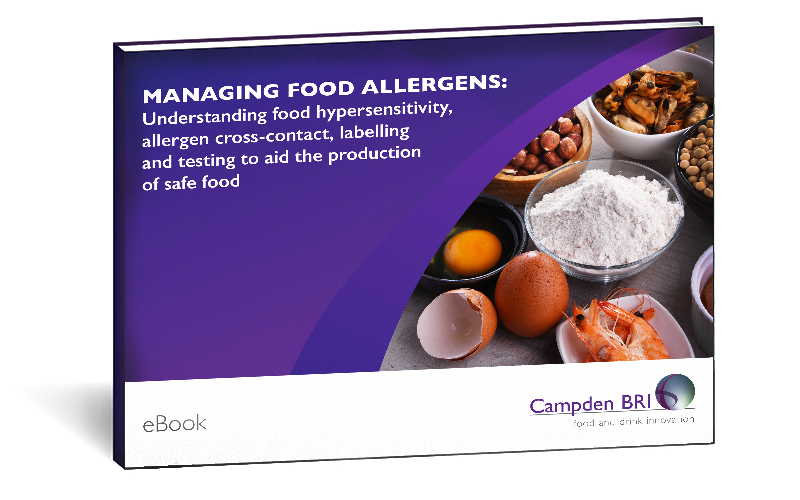
Nearly 70% of respondents consider cross-contamination the biggest challenge when dealing with food allergens
10 June 2022 | Helen Arrowsmith, Regulatory Affairs Manager and Allergen Specialist
When asked in our recent poll, ‘What do you consider to be the biggest challenge with allergen management?’, an overwhelming 68% of respondents chose cross-contamination from the list of options. The results were:
- Cross-contamination 68%
- Labelling 18%
- Food fraud/adulteration 8%
- Testing 7%
Over 200 food and drink industry professionals participated in the poll. With plenty of evidence to support that recalls due to labelling inaccuracies and contamination in both the factory and supply chain, are the biggest causes for food recall worldwide, this result does not come as a surprise. So, what is going wrong?
Download our FREE Managing Food Allergens eBook today! Secure food safety, control and confidence through effective allergen management

How do issues with contamination and labelling happen?
Manufacturing large volumes of food products that must be safe for human consumption with finite resources is, simply put, a demanding responsibility. From primary production, transport, storage and manufacturing, through to retail and food service, contamination could happen at any stage of the supply chain. For many brands, having dedicated production lines in manufacturing facilities is not always an option. Lines are often shared amongst a variety of food products and potential problems can arise such as:
- Product may be put into incorrect packaging
- The final product can come into contact with another food that contains the allergen, via shared equipment or processing lines. As a result, residues of the first product manufactured may be present in the next one if controls such as cleaning, are not effective
- The allergen may be in an ingredient due to agricultural contamination
In these scenarios, the allergenic food is not declared on the product label. Read our blog on the recent developments in this area.
Protect your food business
It is fundamental that food businesses have a robust allergen management programme, which must be integrated within their food safety management.
For many, where resources are low and knowledge in this area is limited, this can mean a lot of work. At Campden BRI, with our in-depth knowledge and breadth of experience in food allergen management, we can support you in implementing effective allergen control programmes to protect, not only allergic consumers from the potentially life-threatening effects of inadvertently consuming a product containing allergens, but also your business from financial loss and a tainted brand reputation.
Our experts can guide you through the challenges of balancing the allergen risks against the practicalities of food production and food service processes.
If you are unsure as to the legal compliance of the labelling of your product, we have experts covering all major international markets who are ready to offer advice. We provide consultancy, training and a suite of allergen tests which can all be tailored to your specific circumstances.
Allergen support
For guidance on providing allergen information, allergen labelling and legislation that applies to allergens in foods, please contact our Regulatory Affairs team:
Food allergen services
Find out more about our expertise and how we can help you







